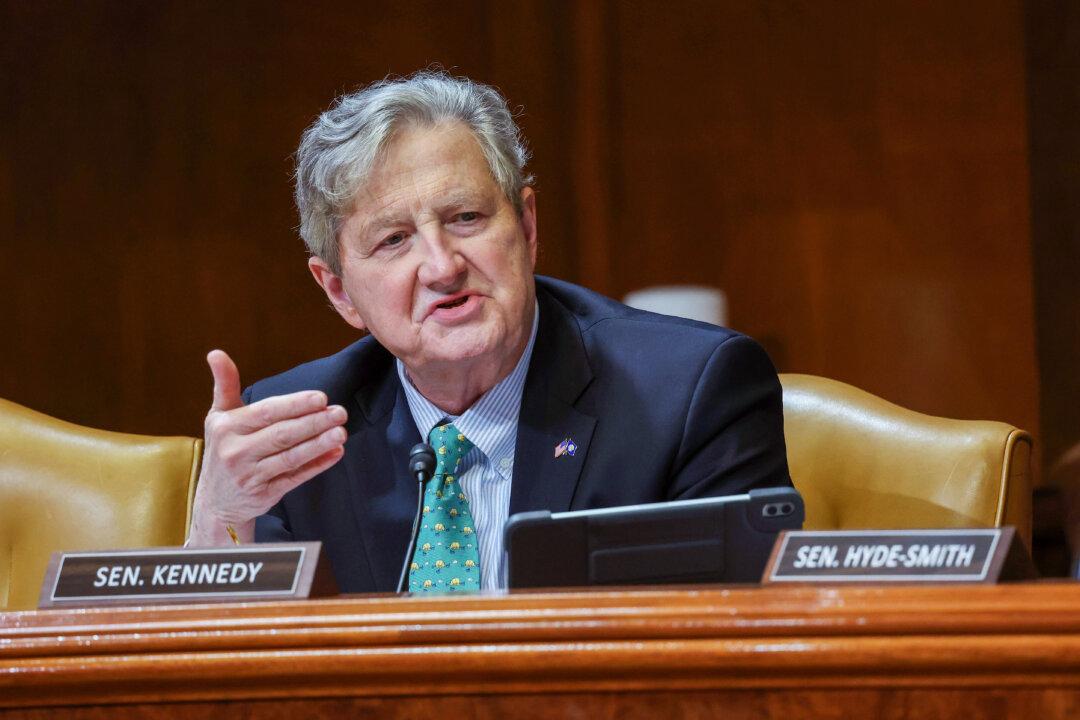The White House is “quoting Socrates in the middle of a bar fight” as the current administration attempts to manage geopolitical strife in the Middle East and Central America while easing sanctions and issuing waivers to enemy regimes, says Sen. John Kennedy (R-La.).
Deputy Treasury Secretary Adewale Adeyemo appeared before the Senate Banking Committee to discuss his department’s efforts to fight illicit financing and terrorism and curb sanctions evasion.





